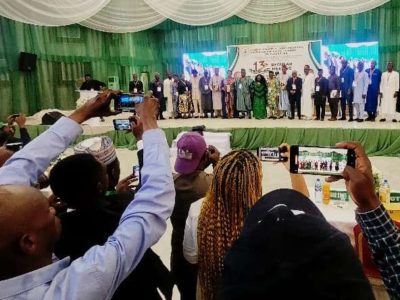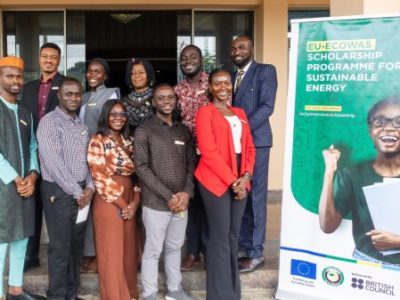The United Nations Educational Scientific and Cultural Organisation (UNESCO) is exploring partnership with Nigeria to promote digital economy in Africa’s largest economy and most populated with over 200 million people.
The Permanent delegate of the Federal Republic of Nigeria to UNESCO, Her Excellency, Ms Hajo Sani this Monday in Abuja discussed collaboration with Nigeria’s Minister of Communications and Digital Economy, Dr. Isa Ali Ibrahim Pantami to further drive the renewed IT-focused agenda of UNESCO, particularly in the area of digital economy.
Ms Sani, while on an official visit to the ministry, outlined applicable areas for partnership including creating knowledge societies, infrastructural investments, world summit on information society, inter-governmental partnerships and programmes, the internet universality indicators, among others.
RELATED
NITDA, NADDC, NigComSat, PICTDA, UNESCO, ADEF Celebrate Power Of Youths Online At Nigeria’s Teen Cyber Fest
UNESCO Conference To Take Stock Of Blockchain Technology And Explore Its Societal Potential
Major Progress In UNESCO’s Development Of Global Normative Instrument On Ethics Of AI
She solicited the minister’s support in ensuring that strategic engagements between UNESCO and the ministry are deliberate and impactful.
She further urged the minister to facilitate the active involvement of UNESCO in Nigeria digital economy sector for the benefit of the country.
Pantami while felicitating with her on her appointment noted that the programmes and initiatives of UNESCO are in alignment with that of the sector and in line with global best practices.
The minister emphasised that ICT is the key enabler of every sector of the economy globally.
“If you explore the key of digital technology properly, you will open a lot of opportunities in education, science, agriculture, health and other sectors. The digital economy is not just a stand-alone sector, but the key enabler to limitless opportunities in every sector. It is commendable that UNESCO has identified and recognised the relevance of leveraging on digital technologies for development,” said Pantami.
He said most of the policies established under the present administration to drive the digital economy have a direct impact on UNESCO’s key objectives. They include the National Digital Economy Policy and Strategy for a Digital Nigeria (NDEPS), the Nigerian National Broadband Plan, the National Policy on Virtual Engagements in Federal Public Institutions, the National Policy on Very Small Aperture Terminal (VSAT) Core Skills for Nigerians, The National Policy for the Promotion of Indigenous Content in the Nigerian Telecommunications Sector, the Revised National Digital Identity Policy for SIM Card Registration, the National Digital Innovation, Entrepreneurship and Startup Policy, among others.





























